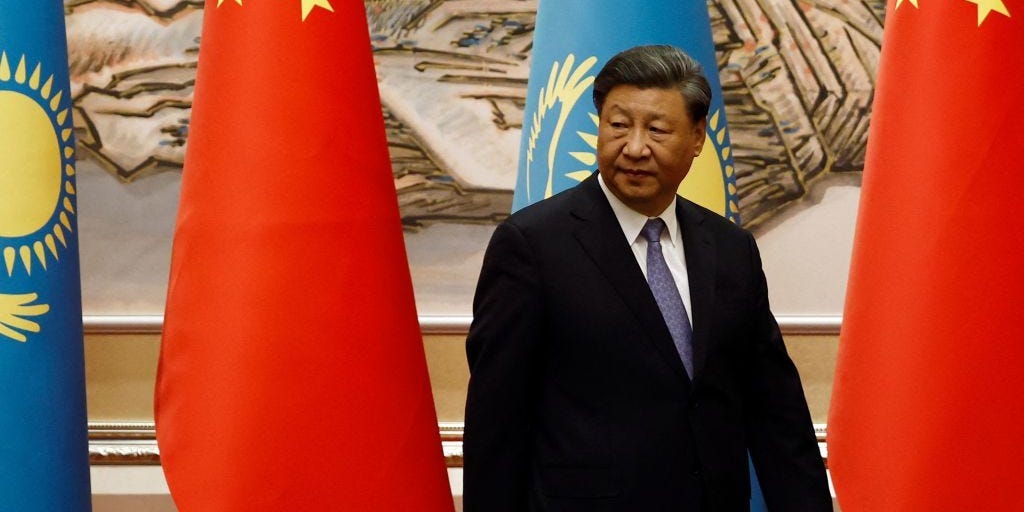Shanghai Cooperation Organization Summit: China and Russia’s Tug-of-War for Central Asia
The Shanghai Cooperation Organization (SCO) is convening in Kazakhstan’s capital, Astana, this week, amid escalating tensions and rivalry between two of its founding powerhouses, China and Russia. Both nations see the region’s strategic importance, and their scramble for influence in Central Asia underscores the complex geopolitical landscape that has evolved significantly in recent years, especially following Russia’s invasion of Ukraine.
Historical Context and Formation of the SCO
Formed in 2001, the SCO originally included China, Russia, Kazakhstan, Kyrgyzstan, Tajikistan, and Uzbekistan. Designed initially as a regional security pact to foster political stability and economic cooperation, the organization has seen its scope and membership expand over the years. India and Pakistan became members in 2017, and Iran is now on the verge of joining. Belarus, a close ally of Russia, is also expected to be admitted this week.
The Ukraine War’s Ripple Effect
Russia’s 2022 invasion of Ukraine has dramatically shifted the geopolitical balance. The war has severely drained the Kremlin’s resources, drawing its focus and finances away from other strategic interests, including Central Asia. Western sanctions against Moscow have further isolated Russia economically and politically, leading it to depend heavily on China for diplomatic and economic support.
In the meantime, Beijing has been proactively seizing opportunities to expand its influence in Central Asia. China is brokering lucrative trade deals, constructing infrastructure like car plants and power stations, and deploying advanced surveillance technologies in countries like Uzbekistan and Kazakhstan. Additionally, the trade route expansion with Kazakhstan through a direct railway line exemplifies Beijing’s strategic push to fortify its economic ties in the region.
According to Chinese customs data, trade between China and Central Asia surged by 27% in 2023, reaching $89 billion. These figures signify Beijing’s growing clout and economic hold over the region, much to Moscow’s chagrin.
Russia’s Waning Influence and Dependence on China
Traditionally, Central Asia has been considered Russia’s backyard, given historical ties dating back to the Soviet era. However, the war in Ukraine has demonstrated to Central Asian nations the significance of diversifying their international relationships.
"The war in Ukraine has proven to the central Asian countries that the diversification of their ties with the world is key to their successful existence in the region," noted Temur Umarov of the Carnegie Russia Eurasia Center.
In a bid to maintain its influence, Russia is striving to strengthen trade ties with Central Asian republics. It is reportedly using these nations to circumvent Western sanctions by obtaining goods that are otherwise banned. Despite these efforts, there’s a glaring asymmetry in the Sino-Russian relationship. While Moscow flaunts its relationship with Beijing as a testament to its ability to withstand Western isolation, the reality is that this friendship comes at a steep cost to Russia’s autonomy.
"The importance of Chinese aid and indirect support for Ukraine takes precedence for Moscow and will shape its approach toward Beijing as long as the confrontation with the West continues," wrote Emil Avdaliani, a professor of international relations at European University in Tbilisi, in a paper for the Centre for European Policy Analysis.
The Central Asian Perspective
Central Asian countries are adeptly playing this power struggle to their advantage. "We are friends with Russia but at the same time, we are looking for opportunities," Mirshohid Aslanov, founder of the Tashkent-based think tank Center for Progressive Reform, told The Wall Street Journal. "Very eagerly, we are looking eastwards."
This pragmatic approach allows these nations to benefit from both powers while avoiding over-dependence on either. Their primary focus is on economic growth and stability, and as such, they are more inclined to form partnerships that offer tangible developmental benefits without getting entangled in geopolitical confrontations.
The Road Ahead for the SCO
As the SCO summit unfolds, all eyes will be on the moves and counter-moves of Xi Jinping and Vladimir Putin. Their discussions and agreements could set the tone for future interactions within the organization and the broader geopolitical dynamics in Central Asia.
The evolving geopolitical chessboard, intensified by Russia’s contested war efforts and China’s ambitious economic ventures, will continue to shape the region’s future, revealing more about how emerging global power structures are likely to unfold.
For more information about the Shanghai Cooperation Organization, you can visit their official website here.
